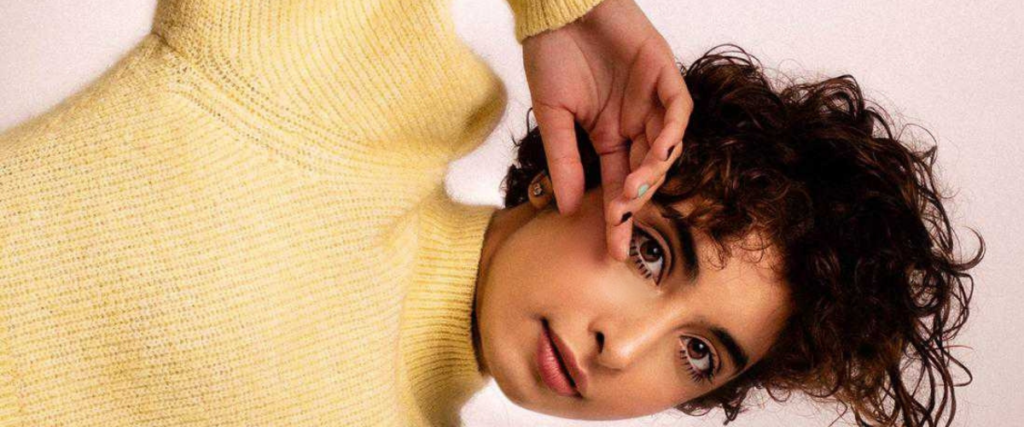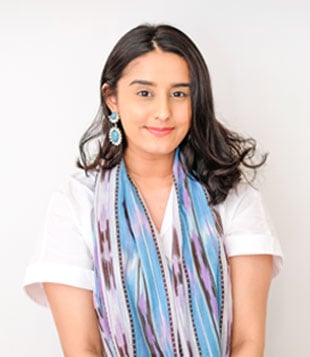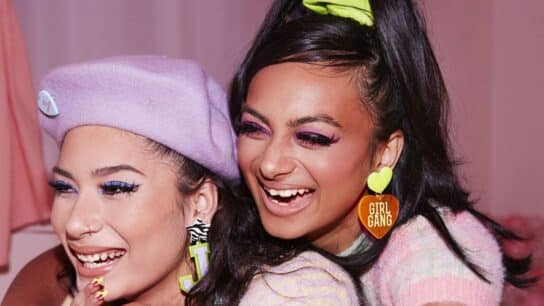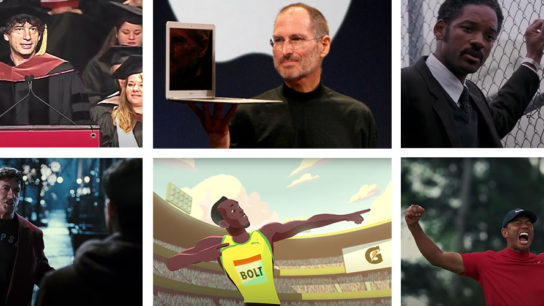Some days she is a model, other days she is the person behind the camera: Aanchal Wadhwani is a serial entrepreneur making an impact through her businesses, art, and representing diversity. Hive Life caught up with Aanchal to discuss her inspirations, influence in the city’s creative industry, and aspirations.
As a child, Aanchal Wadhwani’s earliest memories are of always wanting to draw and do art. When the time came for her to choose between either completing her A Levels or going straight into university at 16 years old, she chose the latter and pursued a degree in Fashion Design.
Today, Aanchal is a serial entrepreneur, founding and co-founding four different creative businesses: Matryoshka Studios, STAGE Hong Kong, Academy of Design, and STAGE Management. We spoke to Aanchal about how her different platforms are representing diversity in Hong Kong and how growing up in the city has influenced her work.

How did you start your creative journey?
At the age of 16, I was sort of exploring different areas of the fashion field. The first thing I ended up doing was trying to get internships after my first year. I wanted to get the real experience. Unfortunately, I couldn’t land anything. I didn’t have much to give to a company at such a young age. My portfolio didn’t consist of the same things a third year student would be able to present.
So what I did instead was find my own means of understanding the field, which led me to start a little handmade jewellery company which I called Matroyshka. I connected with photographers who then came up to me and said ‘Hey, you look interesting! Would you like to model for me?’ Suddenly, all of those doors sort of opened up.
Growing up, I had no interest in photography. I always wanted to be the next big fashion designer. However, after my second degree I never ended up doing anything design-related because photography just became something I fell in love with. I love the endless creativity I can give to photography.
Can you tell us a little bit about each of your four businesses? How do they differ from one another?
I’ve always been entrepreneurial. I think it runs in my family. I grew up around people who started their businesses at a very young age.
So my first business was Matryoshka which has now been changed into a photography business. At first, it was just a space for me to do photography. However, eventually I started my own studio space and now Matryoshka is still a studio space which is available for people to rent out. At the same time, it’s my portfolio on the website. We have a team of makeup and hair artists and all the other supporting parties to get a photography project running.
Stage Creatives is a little bigger and is not just photography. We do videos, animation, illustration, graphic web design and development. Under Stage Creatives, we have a branch called Stage Management which I’ve co-founded with another model in the midst of the pandemic. It’s a diverse agency which presents people of different backgrounds, skin colours, and hair textures.
Being a part of the industry for a very long time now, I’ve found some things difficult to do. When I walk into casting and introduce myself, the directors who find out I’m Indian would ask me to re-do the shot and tell me to say I was Eurasian instead. Why do I have to pretend to be something I’m not? Why does it matter where I come from? It’s really frustrating. Hence, Stage Management was born – an environment where people who look different belong. We’re a whole community now.
Academy of Design is something I co-founded with another business partner. The goal was to make it affordable so that people of all kinds of backgrounds can actually pursue their dreams. We’re running workshops and short courses
What does a typical day in your life look like?
I don’t have a typical day, it’s always changing! One day, I’ll be doing a shoot. The next, I’m here speaking with Hive Life. Another day, I’ll be location scouting with my team or modelling. Some days are definitely more chill than others and I think that’s what keeps it exciting for me.

How has the pandemic impacted the creative industry and your businesses in general?
Thankfully, everything I do is related to visual marketing. However, we’ve had to pivot towards one-on-one classes for Academy of Design for everyone’s safety. On the bright side, that personal experience gives it a little more edge in comparison to a group class. For the visual production perspective, i.e. modelling, acting, photography, everything got really slow for a long time. I lost a lot of local clients but gained a lot of international ones.
Today though, it’s great seeing everything improving. We’re all tired of sitting at home so we want to get back on track. Similarly, a lot of businesses have started looking for new ways to reach their audience or even change their target market entirely in order to move forward.
Why do you think it’s important to address diversity in Hong Kong?
Firstly, Stage Management is very hit and run diversity. Personally, diversity means more than just skin colour and culture. For example, with Matryoshka Studios I try to support female-owned businesses or NGO-based businesses contributing to the environment or even companies that struggle with a budget. With Stage Creatives it’s putting all us creatives in one bubble. Lastly, Academy of Design is for us to feature courses and workshops and in class we would have a 13 year old sitting with a 45 year old showing that age isn’t a limit to learning. This is diversity for me.
How can we work together to make sure Hong Kong continues to grow as a safe and diverse space?
The media [has] platforms for people to learn about other people’s cultures and see things you don’t normally see. We need to understand the different mindsets, cultures, and everything else to make us one global community.

As a woman entrepreneur, what is a major struggle for you?
We have seven days of torture each month compared to our male counterparts. We have seven less functional days than a male counterpart. That’s my biggest struggle as a female entrepreneur which I think a lot of us will relate to.
How do you deal with criticism?
I’ve learnt to be very diplomatic about it. For me, it’s also about changing how people see and work through the industry. There [are] a lot of female photographers today, but back then, we were very few in number. I move on and I know that I will have clients who will trust the work I do.
There’s always going to be somebody who is going to tell you you can’t do certain things. You build through it and prove them wrong. If you do something you truly love, there isn’t anything that’s going to stop you from doing so. You’ll fight for your place in the industry or you’ll find the change and make something work for you.
How do you maintain a work-life balance, especially in a fast-paced city like Hong Kong?
I’m a huge workaholic. I used to work 24 hours a day! I would reply to clients in a minute. For someone who’s running their own business, the next thing is always important. I don’t get a monthly salary. It’s the next project you’re working on. However, over time I’ve learned that if I’m at home with family or it’s my day off, I will not work and I’ve been very strict about this recently. I was initially worried this would affect my work but it hasn’t. I’m still learning though!

What’s next for Aanchal Wadhwani?
My goal is to expand beyond Hong Kong and into Asia. My eyes are looking towards India. I felt a really big connection to the country the last time I visited and I really want to pursue my career there. Other parts of Asia are very interesting to me, as well. I would love to be a photographer or act in other cities. It’s always been a dream.
Related Articles
Diversity in Hong Kong: A Conversation with Roadside Rumours
OliveAnkara: The Vibrant Fashion Label Celebrating Cultural Diversity



![[15] Famous Businesses Started by Asian Entrepreneurs](https://hivelife.com/wp-content/uploads/2021/04/Untitled-design-6-544x306.jpg)

